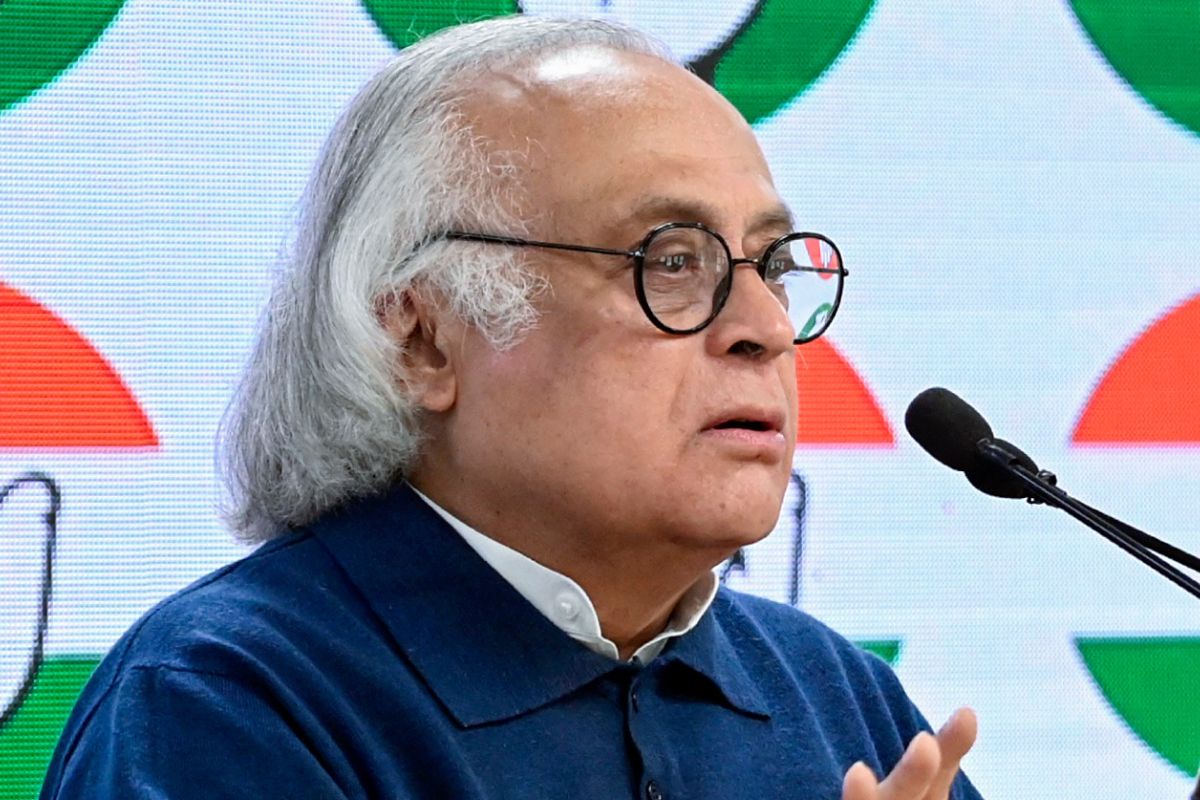USAID row: Congress slams BJP, demands white paper
The grand old party also said that the “white paper” should not only focus on USAID funding, but all such agencies which fund both Governments, individuals and all other entities under Indian law.
Congress General Secretary in Charge of Communications Jairam Ramesh said on Thursday that the Union Government notified the rules of the Citizenship Amendment Act (CAA) just one month before the 2024 Lok Sabha election to polarise the voters.

Congress general secretary in-charge of communications Jairam Ramesh (Photo:ANI)
Congress General Secretary in Charge of Communications Jairam Ramesh said on Thursday that the Union Government notified the rules of the Citizenship Amendment Act (CAA) just one month before the 2024 Lok Sabha election to polarise the voters.
Reiterating the Congress party’s position that CAA stipulates religion as a basis for giving citizenship, hence it is against the spirit of the Indian Constitution, he said that the rules should have been framed six to one year after the enactment of the legislation.
“It took four years and three months to frame rules for the CAA. We had put forward our opinion that, through this act, the Center is giving citizenship based on religion. This is against the spirit of the constitution. But the government, through its majority, passed the bill. Normally, the rules are framed within six to one year of the enactment of the legislation. But here, it took 4 years and three months to frame the rules,” Ramesh told ANI.
Advertisement
“What was the intention? Make the act in 2019 and just one month before the 2024 election, frame the rules to polarise the voters in the states like West Bengal, Assam, Kerala, Tamil Nadu, Gujarat, and Maharashtra,” he added.
Earlier, in an interview with ANI Union Home Minister slammed the opposition parties for questioning the timing of the promulgation of the CAA rules saying they were indulging in politics of lies.
Advertisement
“All opposition parties including Rahul Gandhi, Mamata or Kejriwal are indulging in jhooth ki rajneeti (politics of lies) so the question of timing does not arise. BJP has made it clear in its 2019 manifesto that it will bring CAA and provide Indian citizenship to refugees (from Pakistan, Bangladesh and Afghanistan). BJP has a clear agenda and under that promise, the Citizenship (Amendment) Bill was passed in both houses of Parliament in 2019. It got delayed due to Covid. BJP had cleared its agenda well before the party got its mandate in the polls” Amit Shah said.
“Rules are now a formality. There is no question of timing, political gain or loss. Now, the Opposition wants to consolidate their vote bank by doing appeasement politics. I want to request them that they have been exposed. CAA is the law for the entire country and I have reiterated nearly 41 times in four years that it will become a reality,” he added.
The Home Minister said that there is “no question of political gain as the main aim of the BJP is to provide rights and justice to persecuted minorities coming from Pakistan, Afghanistan and Bangladesh.
“The opposition had even raised questions on surgical strike and the abrogation of Article 370 and linked it with political gain. So should we not take stern steps against terrorism? We have been saying since 1950 that we will withdraw Article 370” the Home Minister said.
“I have spoken on CAA at least 41 times on different platforms and spoken on it in detail that the minorities of the country need not be afraid because it has no provision to take back the rights of any citizen. The CAA aims to confer Indian citizenship to persecuted non-Muslim migrants–including Hindus, Sikhs, Jains, Buddhists, Parsis, and Christians–who migrated from Bangladesh, Pakistan, and Afghanistan and arrived in India before December 31, 2014, and through this law, their sufferings can be ended” he added.
On March 11, the Union Home Ministry notified rules for the implementation of the Citizenship Amendment Act (CAA).
The CAA, introduced by the Narendra Modi government and passed by Parliament in 2019, aims to confer Indian citizenship to persecuted non-Muslim migrants–including Hindus, Sikhs, Jains, Buddhists, Parsis, and Christians–who migrated from Bangladesh, Pakistan, and Afghanistan and arrived in India before December 31, 2014.
Advertisement